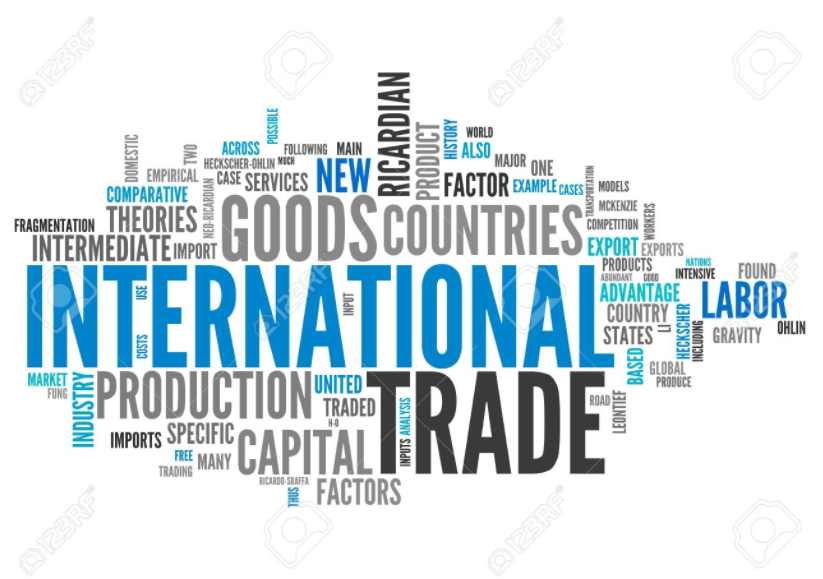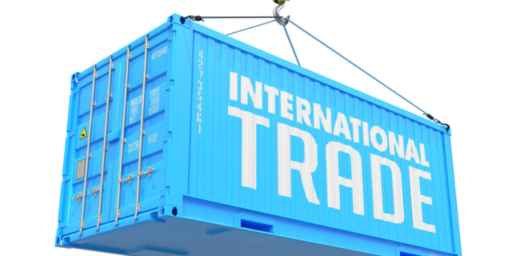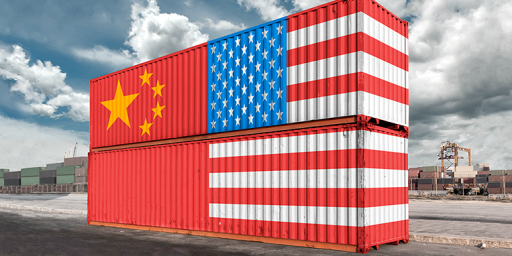Trump and the Global Economic Order
To amplify, to a degree, one of the many points in my previous post:
When Donald Trump was simply a candidate one of the key reasons that I considered him an ill choice for the presidency is because he rhetorically positioned himself as someone who did not understand the global economic order. For all its flaws (all systems have flaws), the current neoliberal economic system has fostered world economic growth and created the conditions for peace at the systemic level. For example, the US and China are unlikely to resort to military solutions when they come into conflict because the two economies are too intertwined. A less dramatic but still salient example would be Russia and western Europe. Beyond that, global trade is responsible for cheap consumer goods and cheap energy, both of which are of value to large numbers of persons of various economic persuasions.
None of this is to say that the neoliberal political order is perfect, or that there aren’t winner and losers (but, of course, all systems have winners and losers). We certainly could, for example, do a better job in terms of domestic politics of helping ameliorate the negative effects of globalization on local economies.
Even setting aside questions of pluses and negatives, the reality is that the economy is currently global in scope. To pretend otherwise (or to pretend that those conditions should, or even can, be changed) is pure foolishness. Many items manufactured in the United States rely on global supply chains (i.e., parts from country X, raw materials from country Y, etc.). If Trump is able to install mercantilist policies, those supply chains will be disrupted. As a result, prices go up and jobs are lost.
Mercantilism and economic nationalism were hallmarks of a far earlier era (e.g., the 19th century) which was also an era in which system-level war was a more likely event than it has been in the current era. This is no small thing. Further, the notion that humanity in the aggregate was better off, or that the working class was better off, during that period is simply not true. To pretend like trade is a simple zero sum game has been undercut by actual experience.
As such, this is not encouraging (via WaPo): Trump vows to strike back at European leaders who warned of retaliation for his tariffs.
And to add a little extra flavor to the discussion, what are we to make of a POTUS who constantly attacks long-term allies in countries who ostensibly share our values, but who frequently praises autocrats (see, e.g., The Atlantic: Nine Notorious Dictators, Nine Shout-Outs From Donald Trump). So, if one supports Trump (or at least tolerates him), what values are you supporting?







In the name of all that is Holy, can we stop reducing this debate to such an asinine and infantile level? The argument is not that 19th century economic policies were better than 20th century ones. The argument is that economic policies are to be evaluated and adjusted based on results and changing conditions and not some pursuit of ideological purity. Donald Trump is not imposing tariffs because he likes the sound of it. He is acting in response to actual harm caused by other countries NOT PRACTICING FREE TRADE.
Mike
An excellent summary. Free trade is, indeed, a good thing for all concerned at the national level. But it does create winners and losers, and there’s no reason the losers shouldn’t be compensated. Especially when the winners mount huge lobbying campaigns to ensure their wins. Europeans at least offer significant social welfare to ameliorate the losses. We have chosen to talk about retraining.
@MBunge: Trump’s declarations (and those from his administration) are, in fact, infantile attempts to resurrect 19th centuryesque trade policies (listen to him talk about steel).
There is no sophisticated attempt to deal with inequities in trade policies. If he is worried about Chinese dumping, the solution isn’t punishing everyone.
@MBunge: “Donald Trump is not imposing tariffs because he likes the sound of it. He is acting in response to actual harm caused by other countries NOT PRACTICING FREE TRADE.”
Actually, he is. Note the effects of his steel and aluminum tariffs.
The US must avoid getting entangled in any kind of “new world order”.
@Tyrell: Well, the US is already extremely entangled in the world, so I am not sure what you are referring to.
@Steven L. Taylor: “new world order” is equivalent to a one world government. General Washington warned against this country getting into entanglements and treaties with other countries.
@Tyrell: Yes, well, no one is talking about one world government (at least not anyone sane). And, actually, the phrase was famously used by George H. W. Bush to describe the post Cold War era (and then was used by crackpots to describe world government).
And as much as Washington deserves any number of kudos, it is rather difficult to see him as a guide for 2018 world affairs. The world has changed a tad since his farewell address.